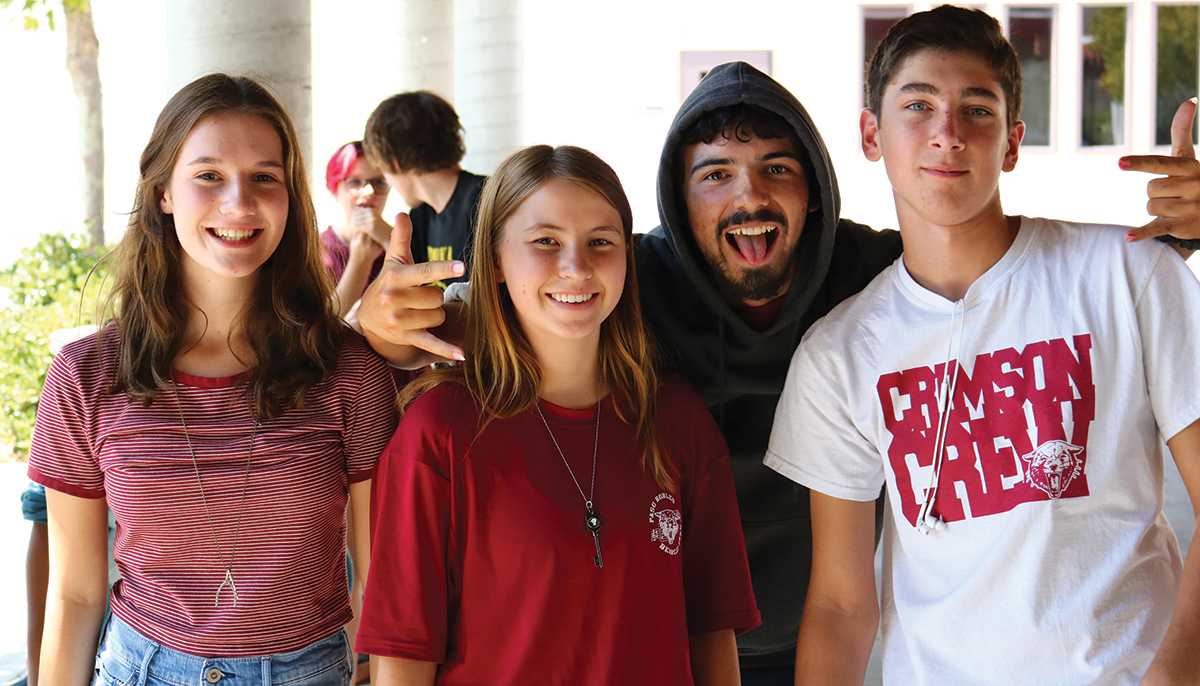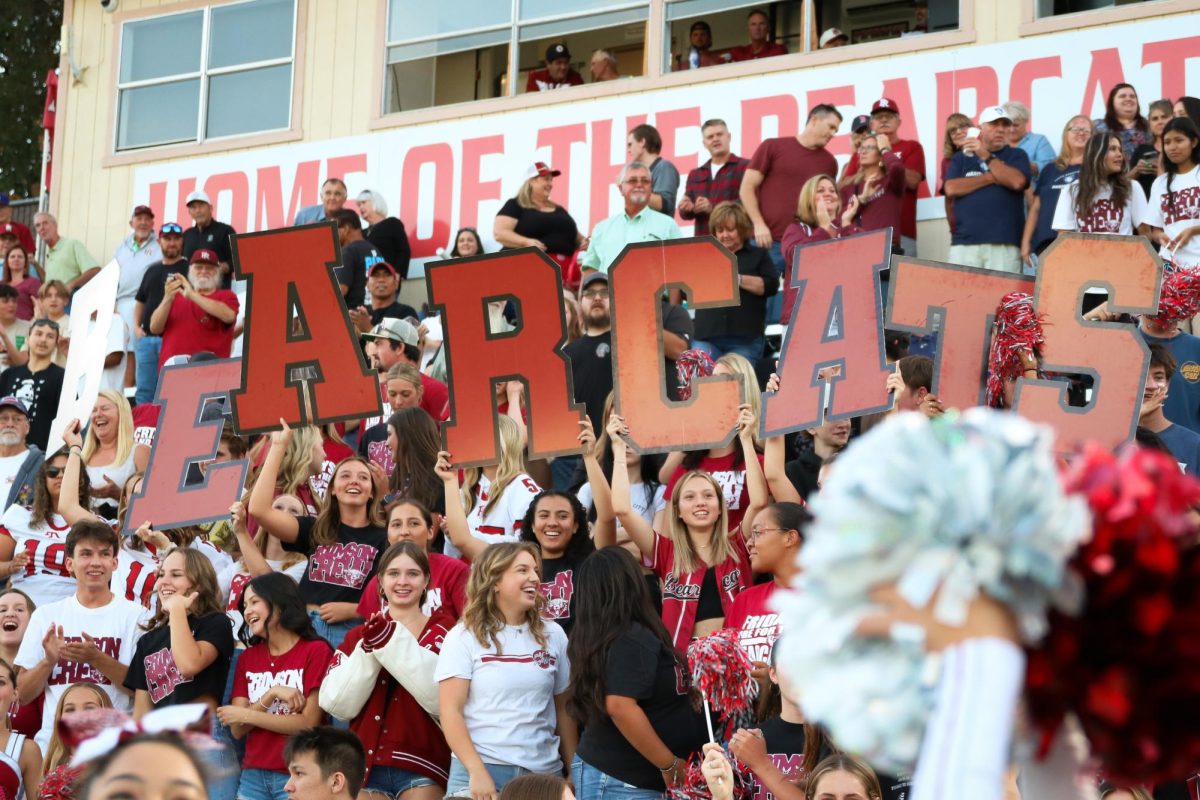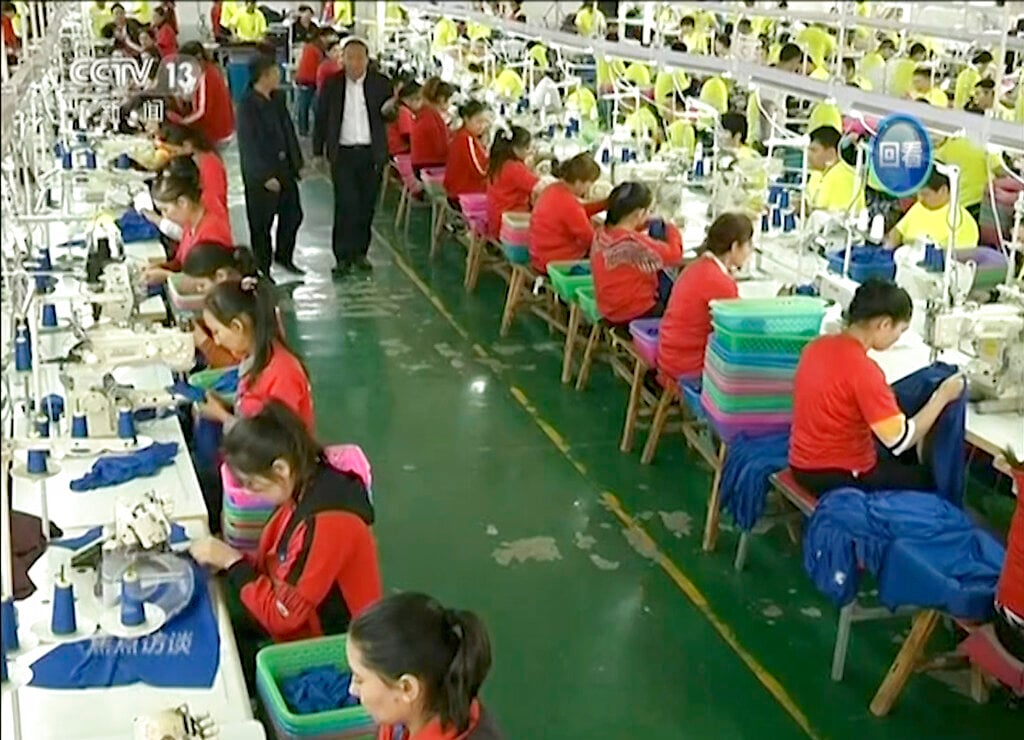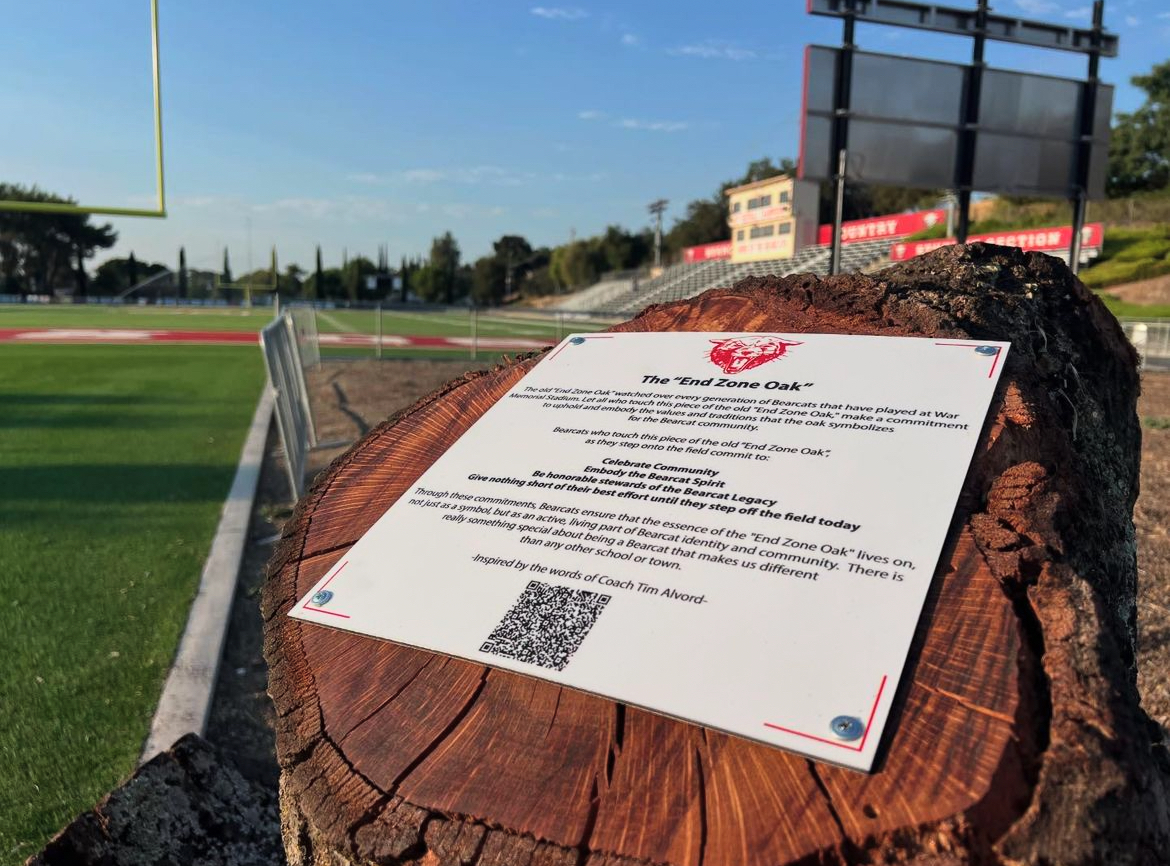5-star student program offers tangible rewards for showing PRIDE

[dropcap size=small]L[/dropcap]eadership and the student body are implementing a new program, the “5-Star Student Program,” to help encourage student extracurricular activity by rewarding students who participate in school activities with free dance tickets, free food, water bottles, custom shirts and more. Additionally, the program is being used to gather data needed to help increase student involvement.
“[Our goal is to] get every kid involved in an extracurricular or co-curricular activity,” Co-Activities Director and AP Chemistry and Leadership teacher Anthony Overton said.
The program has students earn points by attending home sports games and club meetings, wearing spirit wear and participating in student polls, among other things. Points can be “cashed in” for rewards, according to ASB president Josh Dewhurst. The students who are in the top 10th percentile of points earned will be deemed “5-star” students, students in the 15 percent below that will be “4-star,” and students in each 25 percent below that will be given progressively fewer stars. Students will receive rewards based on both their raw point values as well as their star levels.

The program also will also incorporate student attendance at clubs and note students who aren’t attending meetings to help find new ways to encourage participation. “We can pull up a kid and see what they’ve been doing…[then] talk to teachers and tell them to give them a push,” Co-Activities Director and Dance and Leadership teacher Jennifer Bedrosian said.
“The biggest thing this program does is it allows us to reach out to those who we may not have not had the ability to reach out to before because we did not know they were not involved,” Dewhurst said. “Posters don’t invite people, people invite people.”
In addition to encouraging student participation, Overton said that the program is “a tool for us to [ask] why people aren’t going to club meetings,” and to use this information to help tailor club schedules to student needs. For example, if lunch availability is an issue for students, then more clubs might be moved to nutrition or after school, but without the data provided by the program it can’t be guaranteed “students will take advantage” of changes, Overton said. “We can tailor our events [and] our publicity towards” students who have not attended clubs, Dewhurst said.
Although the program, which was developed by an independent 5-Star Student Company, is new

to PRHS, Overton has high expectations for it. “Our colleagues said it was very effective,” Overton said.
Overton also emphasized the importance of always having student IDs on hand as the program develops. The program relies heavily on small handheld devices that scan student ID bar codes and instantly send information to a database. These devices will account for more and more of 5-Star rewards tallying as the program continues, and they will eventually account for all official point collecting, so “student IDs are a must,” Overton said.







